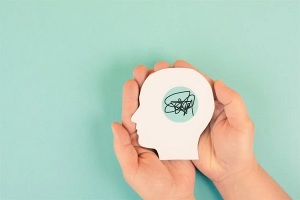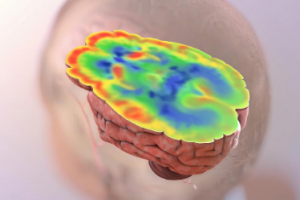Newborn babies' brain responses to being touched on the face measured for the first time
A newborn baby's brain responds to being touched on the face, according to new research co-led by UCL.
A newborn baby's brain responds to being touched on the face, according to new research co-led by UCL.
Babies use this sense of touch -- facial somatosensation -- to find and latch onto their mother's nipple, and should have this ability from birth.
Premature babies often have difficulty feeding, and underdevelopment of their facial sensitivity may be one of the main causes.
Researchers from UCL, Imperial College London, UCLH and Universitá Campus Bio-Medico di Roma developed a new method to study this sense of touch in babies and how their brains reacted using electroencephalography (EEG).
Current methods of evoking brain activity in response to touch aren't suitable for a newborn's face, so academics have developed a device -- based on a transducer -- worn on the fingertip, covered by a clinical glove.
The baby can be lightly tapped on the cheek, and then brain responses are measured as well as the force of the tapping.
The report is published in the journal PLOS ONE.
You may find whole text here.





Related Posts